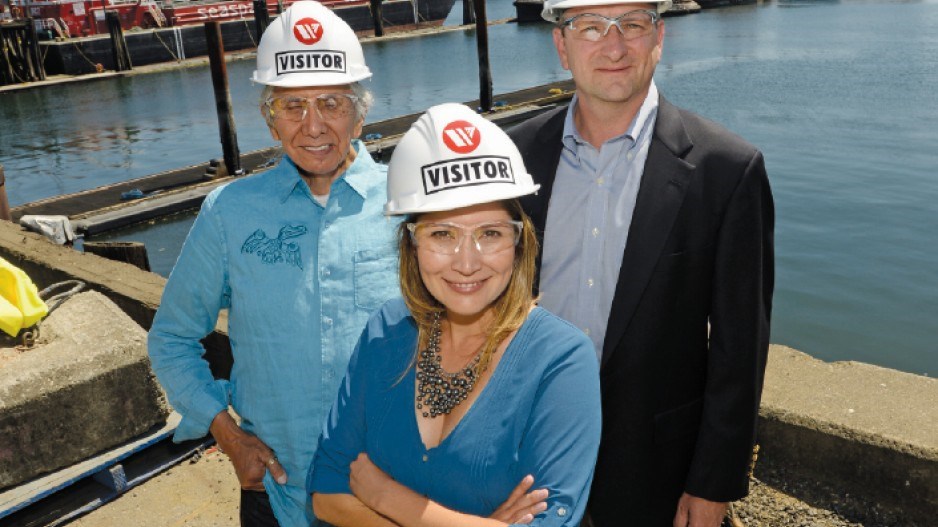In 1989, the unemployment rate on the Tsleil-Waututh reserve in North Vancouver hovered between 60% and 80%.
Today, it’s 3%.
The First Nation is touting the benefits of an innovative strategy it says has allowed its members to share in the benefits of projects like the Evergreen Line and Seaspan’s federal shipbuilding contract.
“It’s been going so well that it’s become the new way to do business with First Nations,” said Leonard George, director of economic development for the Tsleil-Waututh Nation (TWN).
Over the past two years, the nation has formed partnerships with several companies, including:
•Axis Insurance;
•Domcor Health, Safety and Security;
•Eagle West Cranes;
•Mott Electric;
•Britco;
•Tervita;
•Levelton Consulting;
•B&D Excavating; and
•Gateway Infrastructure Group, made up of Fraser River Pile and Drive, Bell Pacific and Kingston Construction.
Under the agreements, the companies seek out qualified Tsleil-Waututh members for job openings. In return, the companies meet their own aboriginal procurement goals.
They can also take advantage of governments or larger companies, like BC Hydro, that have policies encouraging the use of aboriginal-owned companies or businesses that have made partnerships with First Nations.
“The federal and provincial government have aboriginal procurement opportunities,” said Lori Simcox, project manager in the Tsleil-Waututh’s department of economic development, “but they weren’t necessarily being engaged in because there wasn’t a First Nation able to engage at all levels that were being offered.”
The Tsleil-Waututh have made separate agreements with each company, but Simcox said in many cases the partner companies work together on projects or on bids.
“If one company has general work on a particular project and they’re looking for safety and traffic control or crane use, they’ll use other TWN partners.”
Simcox added that the First Nation has focused on the construction industry because of partnerships it formed when Raven Woods condominiums were built on its reserve lands starting in the early 1990s, the first economic development project for the Tsleil-Waututh (see sidebar).
Seaspan has used several of the Tsleil-Waututh’s partner businesses as the shipbuilder completes a $180 million retrofit of its shipyards in preparation for the federal shipbuilding work, which is expected to last for decades.
So far, 25% of the contracts have been awarded to First Nations-partnered business, said Jonathan Whitworth, CEO of Seaspan.
TWN has introduced many of its partner companies to Seaspan. They have then gone on to bid on portions of the retrofit. When the companies win a bid, Simcox said the band gets a “small financial return.”
Seaspan has a long history of working with First Nations and approached both the Squamish and Tsleil-Waututh three years ago, one year before winning the shipbuilding bid, Whitworth said.
“The First Nation bands here, we’re on their territorial lands and we just want to be good citizens,” said Whitworth. “Also they’ve got one of the fastest-growing young generations, and there’s a high probability for First Nation men and women to be working in our shipyards and with our marine fleet.”




